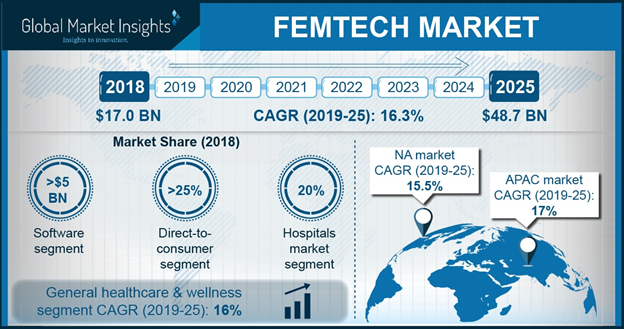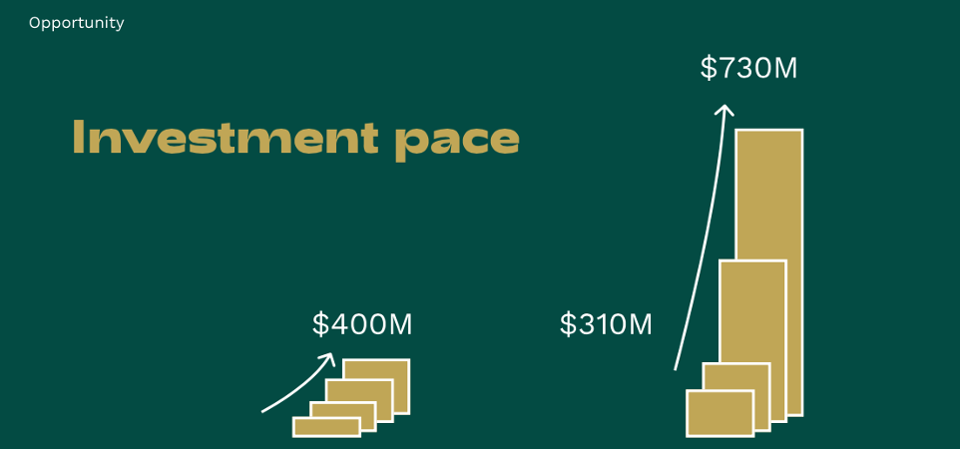RIO DE JANEIRO, BRAZIL – “That’s just absurd,” complains Lea von Bidder angrily, when she recalls a conversation with a potential investor. She has had this kind of conversation several times before – and she is probably not alone in her experiences. Her story goes like this:
Lea von Bidder meets an investor for a business meeting. She is a co-founder of the Swiss start-up Ava, which offers a cycle tracker for women. The tracker is worn around the wrist like a bracelet and analyses body data. It is designed to help women who want to get pregnant recognize when they are at their most fertile.
The venture capitalist specializes in the digital health field. He sounds like von Bidder presenting her product. In the end he tells her that he, as a man, cannot invest in her company and that it would be better for a woman to do so. He has a colleague who is normally responsible for logistics and shipping, but von Bidder should talk to her.
It is experiences like these that are all too familiar to Tech Start-up founders, in the field of women’s health. “A strange situation arises,” says Lea von Bidder. “Then a woman sits opposite you and thinks, ‘Why do I have to deal with them now, my area of expertise is logistics?’ And you yourself think, “Why do I have to talk to you? Your area of expertise is logistics.”
Entrepreneur and investor Bettina Hein has also had such experiences. “It is often not meant badly when men push their colleagues, wives or daughters forward. But it is degrading,” she says. In other fields of research you don’t ask your uncle for advice and conduct studies in this way.”

Femtech for more attention
Menstrual cramps, menopause and fertility – these are all topics that are not widely discussed in society. Many men feel uncomfortable just hearing the terms and don’t want to know anything about them. And even women usually only talk about them with close friends. This is felt by start-ups who want to enter the market with appropriate products. Although half of the population would be potential customers, tech companies have difficulties in obtaining venture capital (VC).
In order to draw attention to the topic of women’s health, Ida Tin of Denmark, head of the menstruation and ovulation tracking app Clue, created the term Femtech in 2016. This includes digital applications and products in the field of women’s health. But unlike Fintech, for example, a controversy has arisen as to whether the term does more harm than good to the industry. Does the technology really require its own label for supposed women’s issues? After all, there is no such thing as “Maletech”.
Lea von Bidder is also familiar with these discussions. She is convinced that the term Femtech has more positive than negative effects. “We have created an industry with it and are perceived as such,” she says. Without the term, her start-up would probably fall under the label “digital health”.
However, the chances of success there are low, she says, and Ava is too small and operates within a niche. “Femtech gives us attention that we wouldn’t otherwise have,” she says. If analysts and market research companies now look at Femtech as a separate entity, investors would also listen carefully and notice that they have not yet invested there.
Melanie Hayes disagrees. She is a partner and investment director at Bethnal Green Ventures (BGV), a London-based venture capital firm for tech start-ups in the social and environmental sectors. The term Femtech could help encourage innovation in the field of women’s health. And sometimes it serves clients and investors if a company is associated with a specific term, for example Fintech.
But they do not consider Femtech to be one of them. She is concerned that the term might be a deterrent to investors, and has no Femtech-labelled companies in her portfolio.

Innovations are necessary
The industry figures are thin. The studies, which are quoted again and again, are mostly from the consulting firm Frost & Sullivan. The latest states that Femtech companies may have raised more than a billion dollars for the first time worldwide in 2019. In 2018, it was only 650 million. Over the next five years, Femtech is expected to reach a potential of 50 billion dollars. By comparison: Frost & Sullivan forecasts a market potential of 228 billion dollars for the entire digital healthcare sector by 2023.
Lea von Bidder is cautiously optimistic. “The market can only grow sustainably if there are real innovations. And these come from research, which many people neglect – also because it is still difficult to finance. Ava has raised US$42 (R$164) million so far, and invests about one-fifth of its revenue into research and development.
Lack of diversity among investors
An often cited reason for the lack of financing is the strong imbalance between male and female investors. This is an issue that has been the subject of discussion for some time, especially in Silicon Valley. Around nine out of ten decision-makers at American VC firms are men, according to a study by the consulting firm Deloitte.
This lack of diversity is reflected in homogeneous networks. Older generations especially lack empathy for such topics, says Bettina Hein. Von Bidder also says that men are often only interested in things that they themselves can relate to. It is also perceived amongst Femtech companies that products dealing with topics such as fertility, i.e. those with which men can identify as “affected”, benefit most from the label.
The question, however, is, whether Femtech actually tends to diminish this connection because it labels fertility as a women’s issue. This runs the risk of reinforcing prejudices.
“Fertility is not just a women’s issue,” says investor Hayes. “But labelling technologies to that effect with the Femtech label could give exactly that impression.” Lea von Bidder agrees that this is a sore point. Ava had actually hoped to find male buyers. In the end, however, they are almost exclusively female.

Optimism for the future
“We shouldn’t worry about changing terms to appease male investors,” says Hayes. Instead, she champions diversity. For her, this means not only investing in companies and products that help women, but also addressing underrepresented groups and issues in general. As well as working toward creating an industry in which investors with diverse backgrounds support similarly diverse products.
What the Femtech industry still lacks are successful role models. At first glance, it doesn’t look like there’s a lot of money to be made there at the moment. “There is a lack of big exits,” says Lea von Bidder – in other words, successful sales or IPOs of Femtech companies.
But she is optimistic that something will change in the coming years and that there will be someone who makes a lot of money with breast pumps or tests for ovarian cancer. “A sense of achievement leads to a sense of achievement,” she says. Bettina Hein also has a positive outlook for the future, and is betting on time – and millennial men. In contrast to the older generation, they could gain favor within their networks by investing in products with the Femtech label.
It is also interesting for investors that women hold an increasingly large share of global assets. Depending on the study, the figure for European and American women could be between 40 and 50 percent – and rising.
This development could bring a breath of fresh air into the industry, as women will probably invest their growing wealth differently than men have done so far – and in topics close to their hearts as well. “A rational investor should recognize the potential, whether with or without the Femtech label,” says Bettina Hein.


